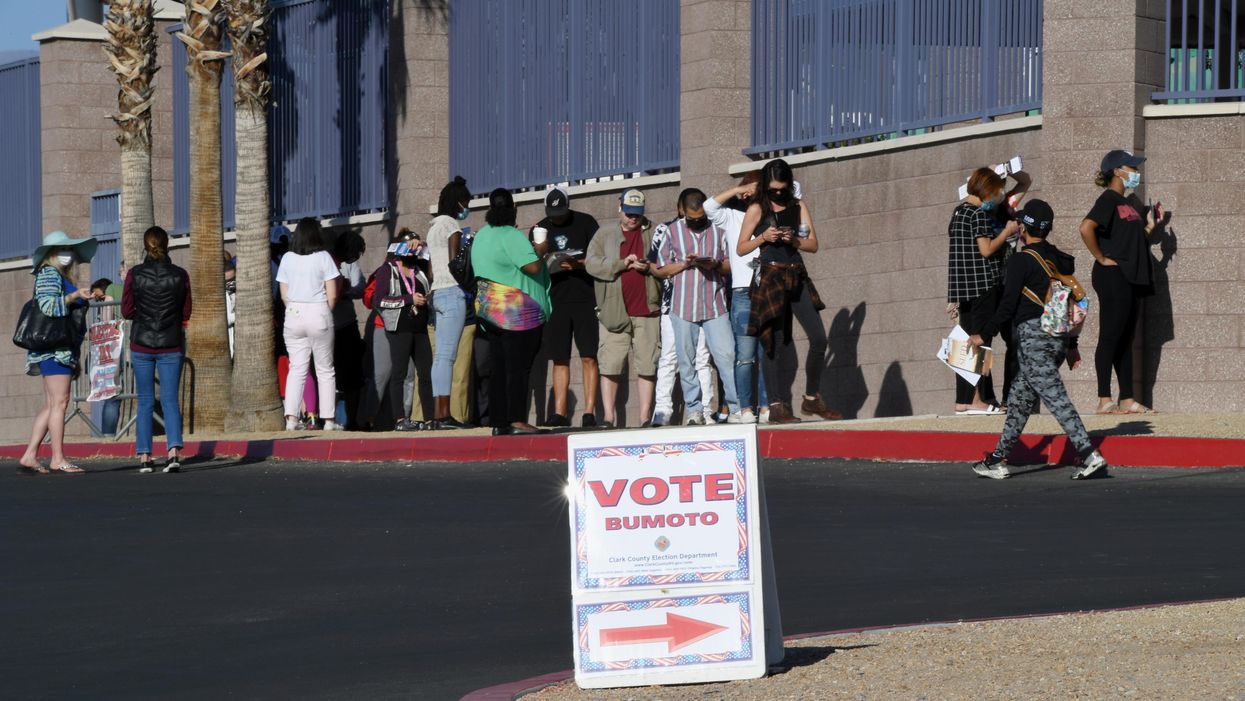Frazier, a student at the University of California, Berkeley School of Law, runs The Oregon Way, a nonpartisan blog.
A vibrant democracy depends on two factors: the scope of participation and the depth of participation. In other words, how many different kinds of people can participate and what is the extent of that participation. Generally, democracy reformers have aimed to broaden the scope and increase the depth of participation, while accommodating the constraints imposed by the complexity of the issues facing society.
In terms of scope, we've slowly but surely moved from the white, male, property-owning participants in Athens' democracy to models in states like Alaska, where all voters — regardless of gender, race, background and ideology — at least have the option to meaningfully participate in elections. The steps from Athens to Alaska were too slow and too small but were nevertheless important. And there are still many more steps to be taken, such as making mail-in voting a norm, making Election Day a holiday and so on.
In terms of depth, the evolution has been less clear. Athens exercised a direct democracy, arguably the pinnacle of participation. Over time, more and larger barriers were added to create distance between the people and the policy. These democratic "middlemen" have attempted to make up for the gulf. Around the late 19th century in America, for instance, the thinking went like this: You pick your party based on your ideology, then the party leaders pick who represents you.
That was the shallowest level of participation — a platform outside of your control, leaders a step removed from your selection, and infrequent, corrupt elections serving as the only means for some democratic participation. Since then, we've hardly made any improvements on the depth of participation: Platforms are still outsourced to parties, party insiders (instead of bosses) now decide the candidates and, outside of wealthy individuals with a lot of spare time, and corrupt elections remain the only means of making your democratic voice heard. Now, folks like Katherine Gehl and the Institute for Political Innovation are trying to remove those middlemen by reducing party control over elections, for instance.
In some cases the barriers to broader and deeper democratic participation made sense as a means to solve problems inherent to an increasingly complex world. Some of those barriers continue to make sense. That's the reason why few people are calling for a return to direct democracy, especially at the level of national governance. Congress passes hundreds of bills each session — few think it's possible for Americans to stay reasonably up to date on and informed of the latest legislative proposals to make an informed decision on every bill.
In most cases the remaining barriers are antiquated and anti-democratic. Take closed primaries. They were created in an age in which parties were seen as necessary conduits of voters' desires. Over time, they became a means to reinforce the strength of the party rather than to improve the party's ability to be a good agent of the will of the people. So, like an appendix, it's time to remove this vestigial democratic "reform."
Closed primaries fail on both the question of the scope and depth of participation. First, in practice, closed primaries are only a tool of the most partisan voters — leaving less engaged partisan colleagues and all non-affiliated voters on the outside of the democratic process. That's not the democratic arc we're trying to follow. Second, the depth of democratic participation is also hindered by closed primaries. Instead of giving voters a choice between all candidates at each stage of the election — primary and general — they're confined at "step one" to only picking those that have likely curried favor with party insiders.
Any new democratic reform (as well as all current barriers to participation) ought to be subjected to this same test. First, does it unnecessarily narrow the scope of participation? If so, it should neither be followed nor perpetuated. Second, does it decrease the depth of participation? If so, it should neither be followed nor perpetuated. This test should also inform how reformers prioritize working on different ideas: Those that do the most to broaden the scope and increase the depth of participation ought to be favored and more heavily invested in.
This test will lead to tough trade-offs and controversial decisions, but for too long democratic reformers have failed to rally behind common causes and have instead selflessly and unsuccessfully fought for their solution at all costs.
Applying this test, efforts to open primaries, for instance, should be a priority for democratic reformers. Unlike other suggestions, open primaries bring new democratic participants into the decision-making process and give those participants more ways to shape our democracy. Other proposals either don't address the scope or depth of participation, or do so in a less substantial way.
The arc of our democratic evolution is long, but it must bend toward participation. The scope and depth of participation has to be the north star for democratic reformers. The stakes are too high to continue to distribute finite resources on myriad reform efforts.


















 "On the Frontlines of Democracy" by Nonprofit Vote,
"On the Frontlines of Democracy" by Nonprofit Vote,

Trump & Hegseth gave Mark Kelly a huge 2028 gift